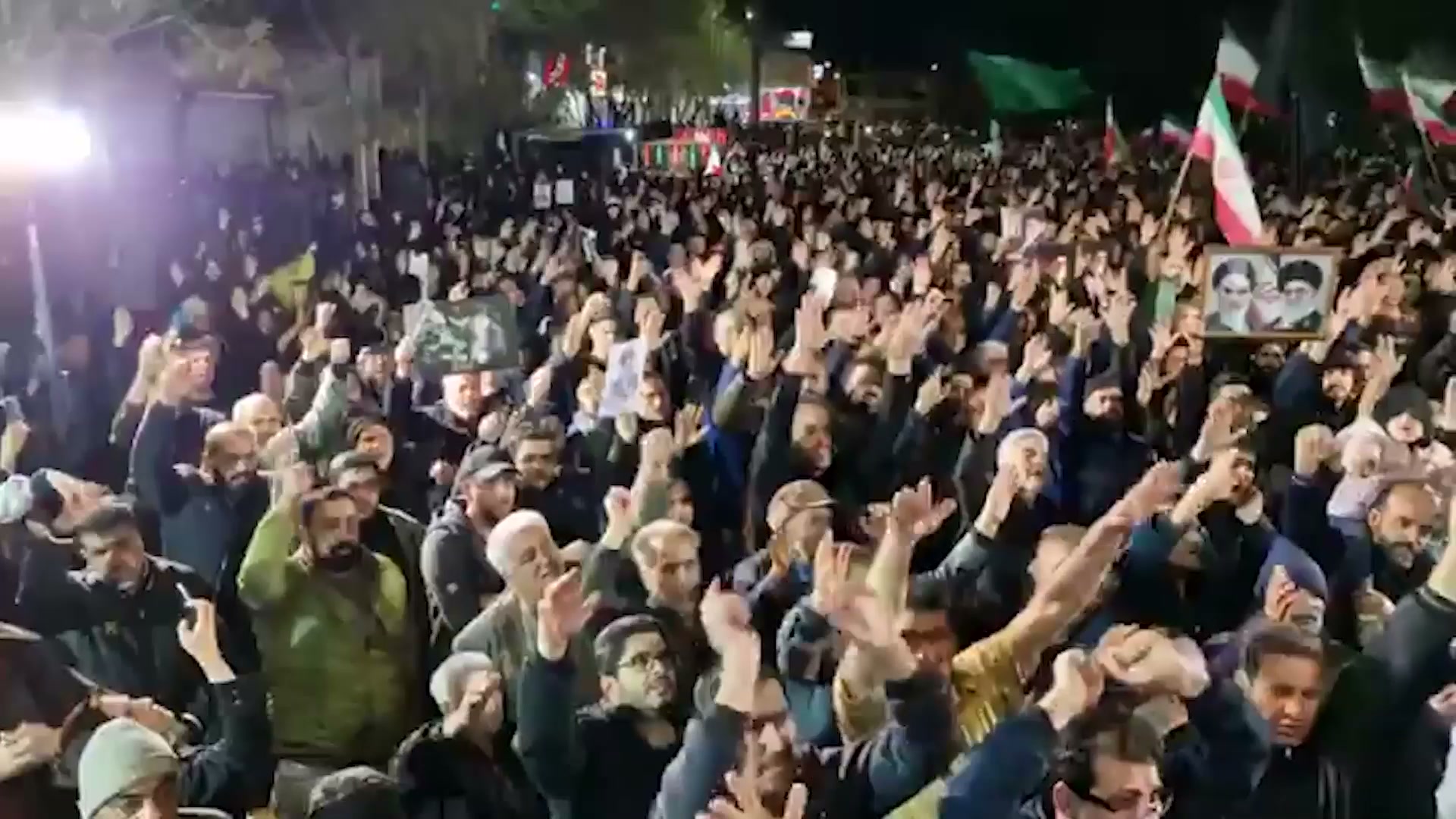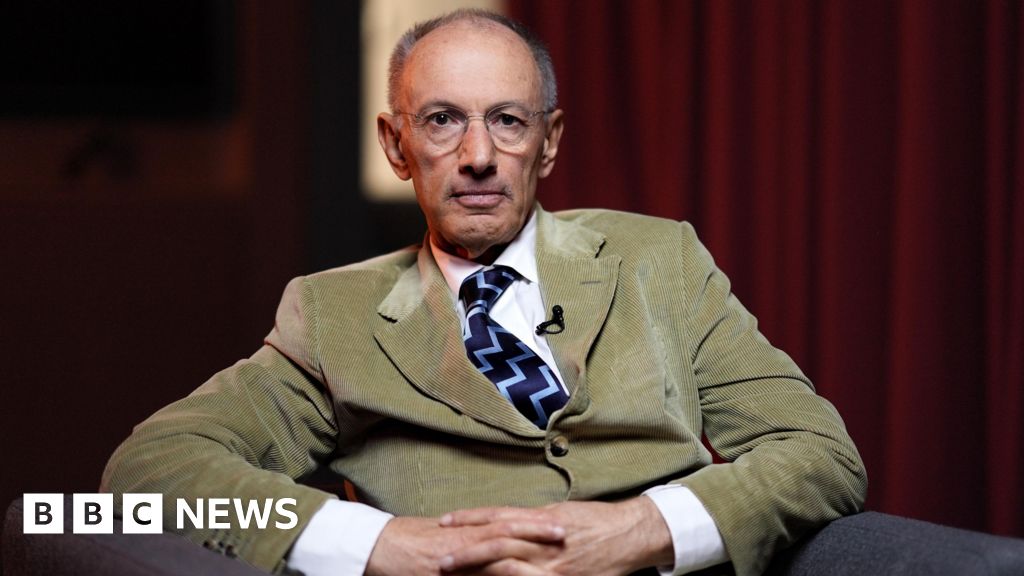


MARCH 3: With a total lunar eclipse in Virgo, one sign should create space for progress, says JEMIMA CAINER, while another is in need of nurturing
Today brings a total lunar eclipse in Virgo. This won't be visible in the UK but the tension between perfection and presence is palpable.

Arne Slot explains Liverpool summer transfer plans after 'extreme' change to Premier League
Arne Slot has addressed Liverpool's transfer plans after the change in emphasis in the Premier League this season

Arne Slot lifts lid on Liverpool's summer transfer plan after Premier League claim
Liverpool spent heavily last summer as the Reds attempted to defend the Premier League title and Arne Slot has confirmed his stance on more incomings ahead of next term

University College London Islamic society mourns death of 'martyred' Ayatollah Khamenei
The Ahlul-Bayt Islamic Society (ABSoc) at University College London described the Supreme Leader's killing as 'martyrdom' and offered condolences from 'all' at the society.

University College London Islamic society mourns death of 'martyred' Ayatollah Khamenei
The Ahlul-Bayt Islamic Society (ABSoc) at University College London described the Supreme Leader's killing as 'martyrdom' and offered condolences from 'all' at the society.

Macron says France must be 'feared' as he announces increase in nuclear arsenal
Emmanuel Macron has announced France will increase its nuclear arsenal - claiming that France needs to be "feared" on the world stage.

Dystopian moment driverless car blocks emergency responders from attending to Austin terror attack victims
A Waymo robotaxi blocked an ambulance that was on its way to attending to victims involved in the deadly terror attack shooting in Austin, Texas on Sunday morning.


Michail Antonio signs with new club 15 months after near-fatal car crash
Former West Ham striker makes return to club football after failed talks with Brentford, Leicester and Charlton Athletic

How the AP decided to call fighting in the Middle East the 'Iran war'
The Associated Press is referring to fighting between Iran and the United States and Israel as the “Iran war.”

Mourning Khamenei - Massive rally in Kashan to protest killing of Iran's late Supreme Leader in US-Israeli strikes
"A massive rally was held in Kashan on Monday to mourn late Supreme Leader Ayatollah Khamenei, who was killed in joint US-Israeli airstrikes. Protesters could be seen chanting slogans and waving Iranian flags. Tehran has declared 40 days of national mourning and a seven-day public holiday, with all government offices and schools closed as the country prepares for funeral rites. Nationwide memorial rallies and protests have erupted since his killing, with many demanding retaliation. The US and Israel launched joint strikes on Saturday, with US President Donald Trump and Israeli Prime Minister Benjamin Netanyahu vowing to 'destroy Iran's missiles'. In response, Iran's Revolutionary Guard Corps said that 'widespread missile and drone attacks' against Israel were underway. US bases were also reportedly targeted in the UAE, Bahrain, Qatar, Iraq and Kuwait. The developments follow three recent rounds of talks between Iranian and American officials, one held in Muscat and two in Geneva."

Mourning Khamenei - Massive rally in Kashan to protest killing of Iran's late Supreme Leader in US-Israeli strikes
"A massive rally was held in Kashan on Monday to mourn late Supreme Leader Ayatollah Khamenei, who was killed in joint US-Israeli airstrikes. Protesters could be seen chanting slogans and waving Iranian flags. Tehran has declared 40 days of national mourning and a seven-day public holiday, with all government offices and schools closed as the country prepares for funeral rites. Nationwide memorial rallies and protests have erupted since his killing, with many demanding retaliation. The US and Israel launched joint strikes on Saturday, with US President Donald Trump and Israeli Prime Minister Benjamin Netanyahu vowing to 'destroy Iran's missiles'. In response, Iran's Revolutionary Guard Corps said that 'widespread missile and drone attacks' against Israel were underway. US bases were also reportedly targeted in the UAE, Bahrain, Qatar, Iraq and Kuwait. The developments follow three recent rounds of talks between Iranian and American officials, one held in Muscat and two in Geneva."

Add vote to your list? Residents will be allowed to cast their ballots at shopping centres and at the weekend before polling day in Labour's latest election law shake-up
In a pilot project to take place at May's council elections, residents of Milton Keynes will be able to vote at the city's 'centre:mk' mall.

One of UK's richest men wants German citizenship over 'hostility' to Jews
The billionaire says "anti-semitism is always in the air".

British woman tells of ‘pretty chaotic’ situation at Abu Dhabi airport
Some 15 flights were able to depart Abu Dhabi in a three-hour window, which were ‘likely helping to clear transit passengers’.